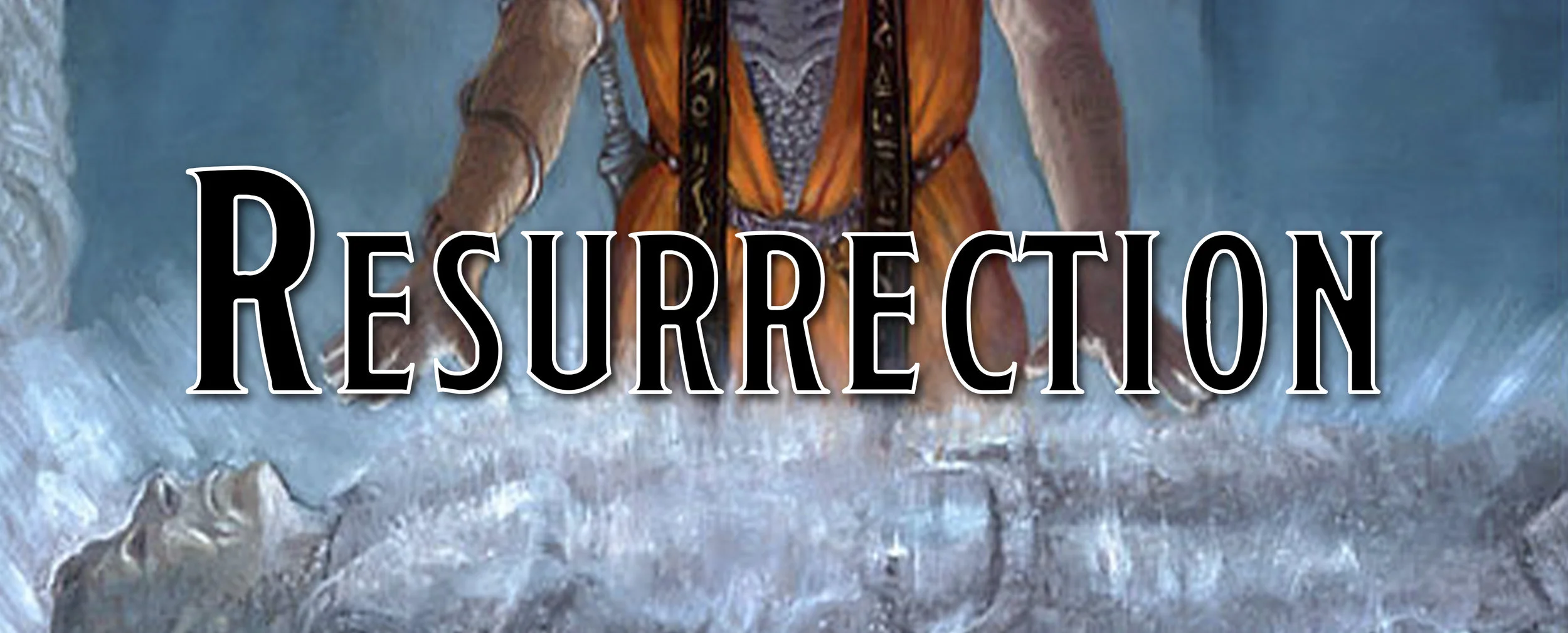Making Tools Useful in 5e: Gaming Sets
Yeah, I know it's not technically a tool in 5e, but you place your proficiency in musical instruments in the Tools & Proficiency section of your character sheet, so I’m counting it! Now, gaming sets should really be called gambling sets as they involve games of dice and playing cards… which technically means you could play DnD inside of your game of DnD. Pretty trippy, huh?
In this article, we are going to talk about gaming sets, though it may be a bit more of an informative article on how casinos make money and the like. As a reminder, I’ve also done: Tinker’s Tools, Healer’s Kit, Brewer’s Supplies, Smith’s Tools & Cooking Utensils.
Gaming Sets
Now, the Player’s Handbook has very little to say about gaming sets… but Xanathar’s Guide to Everything never lets us down… they even call it gambling!
Gambling
Games of chance are a way to make a fortune- and perhaps a better way to lose one.
Resources. This activity requires one workweek of effort plus a stake of at least 10 gp, to a maximum of 1,000 gp or more, as you see fit.
Resolution. The character must make a series of checks, with a DC determined at random based on the quality of the competition that the character runs into. Part of the risk of gambling is that one never knows who might end up sitting across the table. The character makes three checks: Wisdom (Insight), Charisma (Deception), and Charisma (Intimidation). If the character has proficiency with an appropriate gaming set, that tool proficiency can replace the relevant skill in any of the checks. The DC for each of the checks is 5 + 2d10; generate a separate DC for each one. Consult the Gambling Results table to see how the character did.Gambling Results
Result | Value
0 successes | Lose all the money you bet, and accrue a debt equal to that amount.
1 success | Lose half the money you bet.
2 successes | Gain the amount you bet plus half again more.
3 successes | Gain double the amount you bet.
For once, I am not actually that mad at their system. After that bit in Xanathar’s they even give you complications you could throw in. But still… it just feels… lacking and not as fun as it could be! Though… I really like the 5 + 2d10 to create the DC for the check… that’s nice, and I am going to incorporate it into our new rules.
This tool has been updated to v1.1
If you want v1 of this tool, scroll down to the bottom
Lady Luck
I am setting up Gaming Sets as if you are gambling your hard-earned gold and trying to get a win against the casino. You could easily not involve gambling with these games; instead, it could be something to increase camaraderie among players or be a distraction while the rest of the party steals something valuable from someone.
With that said, luck seems to always be on the side of those hardened gamblers, those who have rolled so many dice they seem to have just the right knowledge of how they will roll. Those people have proficiency in their gaming set of choice, and this gives them special options when it comes to their favorite games of chance.
Giving those with proficiency in gaming sets the ability to reroll a die or see the House’s hand helps showcase their hard-earned skill over those just learning what a blackjack is… though it isn’t always enough if the newbie is just a bit luckier that night.
Institutions
It’s assumed that most gambling will be done in three categories: Individuals, Gambling Dens, and Casinos. The larger the ‘house’ the more they are willing to gamble, and I’ve added in minimum and maximum bets that these establishments would be willing to lose. Now, this isn’t to say a casino won’t ever do an afternoon of 100gp buy-ins, but by keeping it cheaper, the players aren’t risking their entire life savings on a lucky roll… or getting more gold than they may have planned for them to have. As always, the minimum and maximum bet is based on the DM’s prerogative and can fluctuate wildly from table to table.
Making that Money
Now, how exactly do casinos and gambling places make money? Typically in games of chance, they offer games where they have a small edge over the gamblers. This is typically only a small percentage of chance on their side, but it’s enough to keep their lights on and make a ton of money every year. They also take a percentage off the pot that the winner of a game gets, and they have buy-ins to their games that participants may never get back. In any case, the House will try and make as much money as possible, and they have proficiency in all games of chance.
Because the House is likely to win the majority of the time, your players will lose gold with some of the games. If you aren’t a fan of that for your table, you can increase the odds your players get or don’t take a percentage away from pots.
Winning No Matter What
Now, that brings us to… less reputable gambling locations. Not everyone is trying to play a game of chance with the adventurers where the adventurers might win. Sometimes, there will be cheating, and we have a few different ways of dealing with this for the table.
If a player wishes to cheat, they must roll a Dexterity (Sleight of Hand) check against the DC of the casino. Remember that one part in Xanathar’s where you created the DC by rolling 2d10 + 5? That's how we will figure out the DC for our players, and if they beat it, they get to reroll a dice. If they wish to reroll anymore, then they must make another check, and the DM must reroll the DC. This continues so on and so forth until the player is happy or the House catches them in the act and, I assume, kicks them out.
If the House wishes to cheat against the player, there are two options. The DM can roll a Sleight of Hand check against the passive Perception of the party, or they can have the party roll a Perception check against a DC determined by rolling 2d10 + 5. This gives the DM options. If their table has really poor passive Perceptions, having the party roll gives them a better chance to catch a cheating table. If they have really good passive Perception, by having the DM roll against that with a Sleight of Hand check, the DM might be able to pull one over on the table more easily.
Games
The most important part of our system is just creating games for the table to play. I understand why Xanathar’s went a bit more vague route when it comes to describing gambling at the table, but that takes out all the fun of actually gambling. By having several games that a character can play, they can choose to play games they are proficient in, and the entire table can have fun at gambling… not just the rogue who went out for a week and came back with a blackeye and no gold on them.
These games are ones I’ve been using in my own games for a while, some I stole from other places, others are adapted from existing games in the real world and doesn’t require much explanation.
Winners/Losers
So there we have it. This is a pretty simple ‘system’ that really just required me to bring in a few gambling games and give a more active purpose to being proficient in gaming sets. But that’s how things shape up sometimes, some of the easiest systems can be the funnest.
Next week, we are going to jump on another tool… maybe even a proper tool from Xanathar’s! If you liked this, make sure you check out our Patreon, there’s an option to get access to all of my homebrew in one central place, this includes the other tools I’ve done, future tools I’m still working on, monsters, items, etc! Plus, if you have any favorite gambling games, let me know! I’d love to add them into the .pdf so people have a central place to find them all.
If you want a printer-friendly PDF of this tool or any other tool, consider supporting us at the $1 tier on our Patreon! All tools that I’ve created or will create in the future will be uploaded to our Patreon in printer-friendly versions. We appreciate any and all support!




